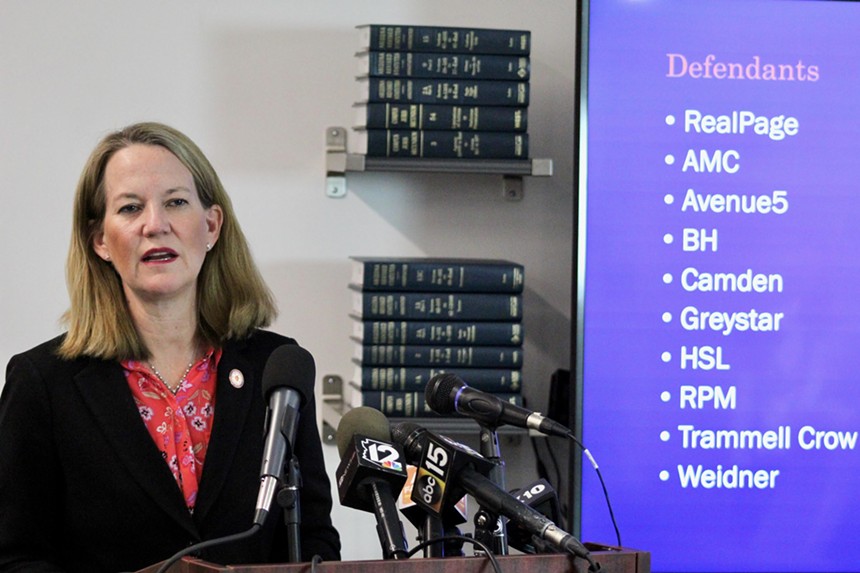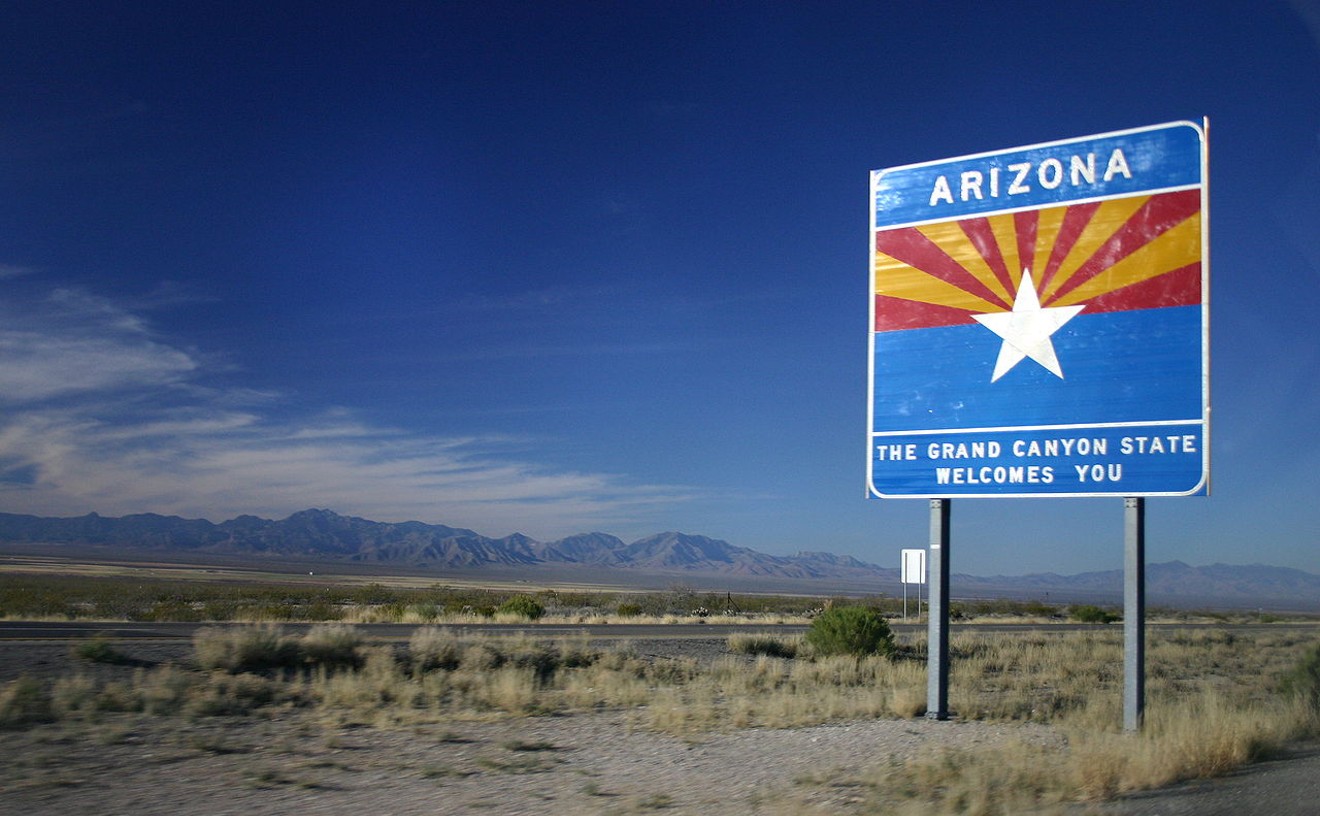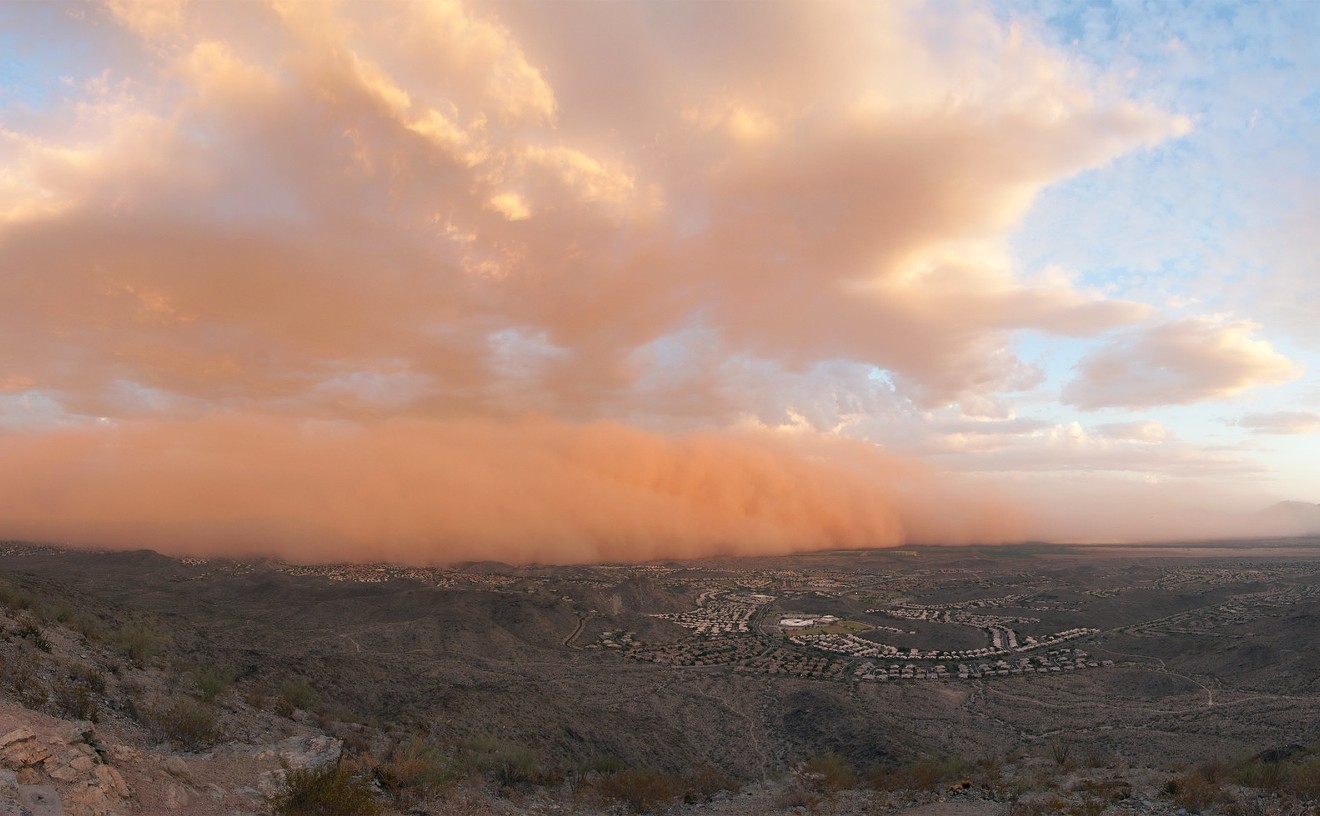Landlords moved to evict tenants in court 83,236 times in 2023, court data shows, an increase of about 23% from the 67,491 filings in 2022. Property owners filed 7,809 and 7,948 evictions in county courts in September and October 2023, respectively — the highest figures for those months in the last 23 years. (The county’s electronic eviction records go back to 2000.)
While only 13% of eviction filings in 2023 yielded actual eviction orders, housing and tenant advocates worry that the number of evictions will continue to rise and result in catastrophic levels of tenant displacement.
“We're not doing anything differently,” said Maxine Becker, an attorney with Wildfire, an anti-poverty advocacy organization. “And whatever bits of help were out there are going to be completely gone. I don't see any reason why (the numbers) would suddenly go down.”
Several converging economic factors have fueled the eviction crisis, including meteoric rises in rent in metro Phoenix, a lack of affordable housing options and wages that haven’t kept up with the cost of living, according to Nicole Newhouse, executive director of the Arizona Housing Coalition. The coalition is a nonprofit seeking to provide safe housing and end homelessness in Arizona.
A Maricopa Association of Governments analysis of U.S. Census data shows that apartment rent has increased about 38% in the past four years in metro Phoenix. The median rent for a one-bedroom apartment in the Valley was $1,550 in 2023, the study notes.
The increase in rent, Newhouse said, can be blamed in part on landlords who opportunistically raised rents once the statewide evictions pause was lifted in late 2020 by then-Gov. Doug Ducey.
“People were in various states of their leases, and when those leases were up, because landlords weren't able to get paid from some of their tenants, tenants were evicted, and then landlords were able to raise the rents,” Newhouse explained.
The Grand Canyon State also faces a general housing shortage. In 2022, the Arizona Department of Housing estimated the state needs 270,000 more housing units to serve its population. “We haven’t built enough housing for people who have the least,” Becker said. “That is what really is driving the problem.”
MAG estimated last June that these high-rent conditions landed the hardest on residents with the least economic means.
About 548,000 households, or a third of tenant population in metro Phoenix, are cost-burdened, meaning they spend about 30% of their income on rent. Furthermore, 256,000 households spend half their earnings on rent or are severely cost-burdened. Almost all cost-burdened households, about 92%, earn less than $75,000 a year, MAG estimated.

Arizona Attorney General Kris Mayes highlighted the apartment landlords she accused of price fixing during a press conference on Feb. 28.
TJ L'Heureux
Few options to slow evictions
So how are public entities trying to curb evictions?Maricopa County created a Housing Stability Rental Assistance program in February to aid renters who are experiencing “greatest need,” a county spokesperson said.
The program draws from $10 million allocated to the county through the American Rescue Plan Act, a federal aid package awarded to local governments for pandemic recovery and infrastructure investments.
The HSRA will help pay up to two months of back or future rent for households that meet the federal eligibility threshold of less than $84,000 in yearly income, said Czelsi Gomez, a public information officer for the county. Tenants can apply for the program online.
Before the HSRA, the county relied on the Emergency Rental Assistance program to prevent tenant displacement. The ERA, which ended Jan. 19 after providing $141.6 million in rent and utility assistance in Maricopa County, also was funded with federal dollars, disbursed to states during the pandemic to address tenant displacement in the economic downturn.
Funds for the ERA have been fully spent, and the county doesn’t plan to extend the program further, Gomez said.
“ERA was always intended to provide temporary relief to those impacted by the national and local health emergency,” Gomez said.

Greenlight Communities broke ground on Streamliner 16th on East Polk Street in April 2023. The 208-unit complex is supposed to offer "attainable" — if not affordable — housing.
Katya Schwenk
Property rights trump tenant rights in Arizona
Maricopa County hopes to reduce the number of evictions by providing legal assistance to tenants. It has contracted with Community Legal Services, a local nonprofit legal service provider, to help tenants facing eviction.The contract with CLS was approved in 2021 by the County Board of Supervisors using $2.6 million in American Rescue Plan Act funds. The assistance program’s allocation in 2023 was $323,561, and Gomez said it served 2,269 individuals last year through referrals, calls and negotiations with landlords.
Legal advocates, however, question the effectiveness of legal representation in the face of eviction, saying state law is too deferential to property owners. Becker said that, for example, tenants don’t have much recourse under Arizona law to fight an eviction if their home is in disrepair.
“It doesn't matter if a landlord doesn't fix your air conditioning or your plumbing when you’ve got leaks,” she said. “That is not a legal defense in Arizona.”
Becker attributes the lack of legal strategies to the state’s strong sense of property ownership rights.
“It really drives the state in a lot of ways,” she said. “(Landlords) need to be allowed to do whatever they want with that property, and I respect that value,” Becker said. “But I think that it's also just kind of clouded our ability to look at how the economic conditions have changed.”
For Becker, these values translate into a culture of shame around evictions. There is a belief, she said, “that if you can't pay your rent, you've done something wrong. You didn't work hard enough, you didn't budget properly, you made bad decisions.”
But the private and philanthropic sectors are starting to develop solutions, she added. It starts with a change of perception.
“There's more thought now going into prevention entirely,” Becker said. “We are looking at some of these eviction issues that have started out as a $400 problem, a couple hundred dollars short on rent. We are looking at how we identify those folks and see if we can help them with the smaller dollar amount before it escalates into an eviction.”












